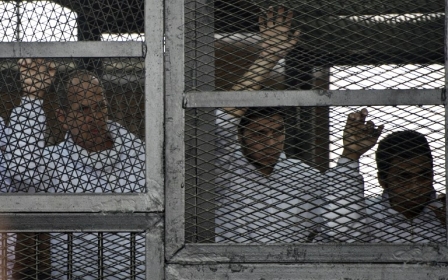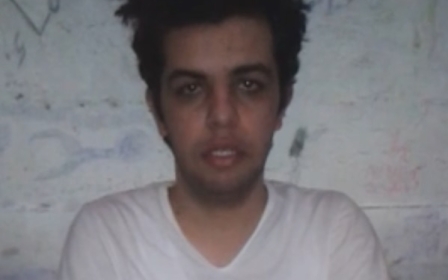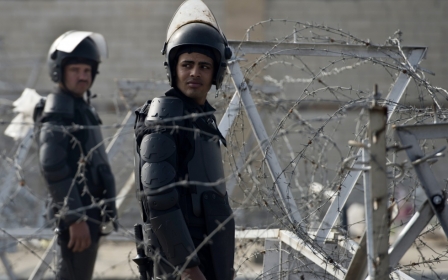Lawyers for detained Al Jazeera journalists quit case

Three lawyers representing Al Jazeera English journalists on trial in Egypt abruptly quit the case on Thursday, accusing the satellite news station of working against Egypt.
Australian correspondent Peter Greste, watching proceedings from a caged dock, appeared taken aback when his lawyers announced to the judge that they were dropping the case.
Lead defence lawyer Farag Fathy said he and two colleagues would no longer represent the reporters in the case, which has sparked international concerns.
"Al Jazeera is using my clients. I have emails from [the channel] telling me they don't care about the defendants and care about insulting Egypt," Fathy told the court.
He accused the Qatari news organisation of "fabricating quotes" in its coverage of the trial and attributing them to him.
An Al Jazeera spokesman said: "The lawyer who made an outburst in court today made his position on the team untenable.
"We now have the best legal representation working in harmony, focused on getting our journalists out of jail."
Greste earlier told reporters from the dock: "I am baffled. This is the first time we have heard of this problem."
Egypt's military-installed authorities have been incensed by Al Jazeera's coverage of their crackdown on supporters of ousted president Mohamed Morsi, overthrown by the army in July.
Ibrahim Abdel Wahab, lawyer of the Egyptian-Canadian Mohamed Fahmy, the Cairo bureau chief of Al Jazeera English, accused prosecutors of trying to "hinder" his work.
"They asked us to pay 1.2 million [Egyptian] pounds ($168,704) to get copies of the evidence," he told AFP.
The trial has been adjourned until 22 May.
On Friday morning Lois and Juris Greste, the parents of the Australian journalist, addressed the media, saying the latest adjournment was “another example … that justice delayed is certainly justice denied”.
Juris Greste was quoted in the Guardian as saying, “With great respect to the government of Egypt, what keeps occupying our mind, what we keep asking ourselves time and time again is: what have we as a family done to hurt the people of Egypt that our lives should be so traumatised, so upended and so diminished?”
Meanwhile, Egypt's Cairo Criminal Court has rejected an appeal by Al Jazeera Arabic's Abdullah Elshamy against a decision to extend his detention. His family has denied claims he has quit a hunger strike he started more than 110 days ago.
Defence lawyer Shaaban Saeed told Anadolu Agency that the Cairo Criminal Court had rejected an appeal by the journalist against his temporary detention, which was ordered by Egypt prosecution authorities on 3 May.
He added that Thursday's ruling put Shami's temporary detention renewal beyond appeal.
Shami, in his mid-twenties, has been held without a charge since 14 August 2013.
He appeared recently in a self-made video from inside his prison cell, in which he held the Egyptian authorities responsible for any deterioration of his health. Shami has maintained a hunger strike for the past several weeks to protest his continued detention without trial.
Shami said he had asked for access to healthcare but that prison authorities had turned down the request.
On Thursday, Human Rights Watch called on Egyptian authorities to "immediately" release the journalist.
"Practicing journalism is not a crime," said Joe Stork, deputy Middle East and North Africa director at Human Rights Watch.
"Egypt’s disregard for basic rights, like free expression, is nothing less than shocking," Stork added in a statement.
Middle East Eye propose une couverture et une analyse indépendantes et incomparables du Moyen-Orient, de l’Afrique du Nord et d’autres régions du monde. Pour en savoir plus sur la reprise de ce contenu et les frais qui s’appliquent, veuillez remplir ce formulaire [en anglais]. Pour en savoir plus sur MEE, cliquez ici [en anglais].




